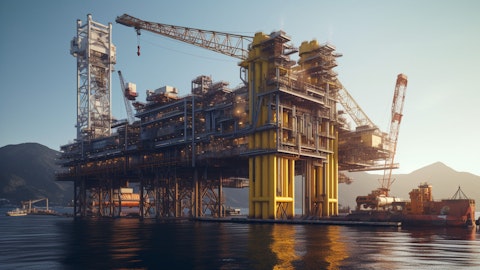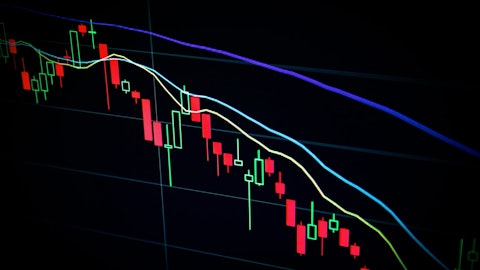Michael Wirth: Thank you, Josh.
Joshua Silverstein: Thanks.
Operator: We’ll go next to Neil Mehta with Goldman Sachs.
Neil Mehta: Yes. Thank you. I just want to stay on the TCO question. As you think about, Mike, the biggest gating factors to getting from here to completion around FGP, just walk us through the landscape and the key milestones that you’ll be watching and we should be watching to give us conviction that the project is coming into service.
Michael Wirth: Yes. So the main message here, Neil, is as we completed both WPMP and then mechanical completion of FGP and we’ve begun to get deep into the commissioning, we’ve, I think, previously mentioned we worked with some technical issues with our utility systems. And as we did that and we saw some of these impacts, we commissioned an independent cost and schedule review off cycle. We normally do these annually, but we didn’t want to wait. And so as we saw some of this evidence that things were going slower, there were some more discovery work, we sent in an independent team to give us kind of a cold eyes assessment on cost and schedule. And I think the main thing that I would distill that down to is the recommendations from that and that are embedded in our updated guidance today reflect a more conservative forecast of commissioning progress.
And so we’re assuming things will take longer than the prior plan. We’re assuming we’re going to have discovery items that tend to come up in complex projects like this. And in response, we’ve implemented some significant changes in terms of how we’re approaching this. We’ve moved contract resources over from 3GI, which is a portion of the Future Growth Project, which is now completed and fully commissioned over onto the other commissioning work. So we’ve added contract resources there. We brought in experienced turnaround and operations people that are very skilled in the discovery work, in managing through the restart of and operations of facilities now to help us with this. And then we’ve also added technical resources to address any unplanned discovery items that would come up.
So we’ve had a significant change in our approach to this. We’ve got a more conservative guidance here that we’re issuing now. And we’ll continue to talk about this every quarter. I guess, the main things to look at here are we’ve got big compressor trains that will start up for pressure boost, which is a key driver of this high-pressure to low-pressure conversion. These are very large machines. And so those are key milestones. After that, we’ve got metering stations that are converted from high pressure or low pressure. And so over the next few quarters – and there’s, I think, 40-some-odd metering stations as you go out through the entire field. We’ve got these two big turnarounds that I’ve talked about. All of those are really key milestones that we’ll be tracking very closely.
And we’ll update you on those as we go forward.
Operator: We’ll go next to Devin McDermott with Morgan Stanley.
Devin McDermott: Hey, good morning. Thanks for taking my questions. I wanted to just stick with upstream, but actually ask about Venezuela. You’ve had some increase in production year-over-year, given the initial sanction relief. And there’s obviously been some additional sanction relief announced just since the last quarterly call. I think you might have been on an interview this morning. You made some comments that you could see a sequential increase in production between now and year-end. I was wondering if you could just step back, talk through what impact this sanction relief has on your production profile and also willingness to invest in that region. And can you remind us how impactful Venezuela volumes are for your corporate cash flow?





